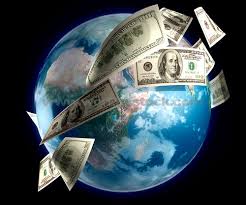Trade barriers come in many forms. Quota is one. This is when a country sets a limit to the imported products. This is done for a number of reasons. One is because the government of the importing country wants to protect its domestic manufacturers. Other barriers or limitations are added costs such as tariffs, duties, and taxes.
In this way, trade barriers can affect international trade by preventing the flow of goods from producers to consumers. Where quotas, tariffs, and duties prevent this flow, it impacts the productivity of the producers, although these will usually seek other markets without these barriers.
Without net exports, a country cannot remain a consumer of other countries’ goods without incurring large debts through the imbalance of trade. It is usually economically beneficial to all parties to maximize the production of their industries, through open markets to a wide consumer base.
Countries in order to protect their economies apply methods of restrictions such as tariffs, quotas, subsidies and exchange controls. By applying protectionism a country can gain from it in such as protecting infant industries, dumping and protecting manufacturing industries, but on the other hand can also have problems such as firms remaining inefficient, retaliation, and misallocation of resources, and related directly to international trade countries benefit on comparative and absolute advantage, and economies of scales it affects the international trade.
International trade increases the number of goods that domestic consumers can choose from, decreases the cost of those goods through increased competition, and allows domestic industries to ship their products abroad. While all of these seem beneficial, free trade isn’t widely accepted as completely beneficial to all parties. This article will examine why this is the case, and how countries react to the variety of factors that attempt to influence trade.
















